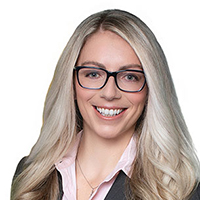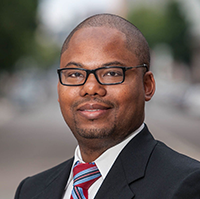
Tips from the Bar: Benjamin Cheeks

Bickel Sannipoli APC
Criminal defense lawyer Benjamin Cheeks, an attorney of nearly 20 years, says this profession “fell in his lap” while he was studying to be an engineer. He attended an engineering high school and then began college as an engineering major. In college, Cheeks took a course on the U.S. presidents, which addressed the United States constitution and how the early presidents interpreted it. From there he began taking more political science classes and eventually switched his major to political science and religious studies.
Cheeks then went on to attend American University Washington College of Law in Washington, D.C. After interning for a summer with the Manhattan District Attorney’s Office as a 2L, Cheeks was offered a position as a state prosecutor upon graduation. Over the next seven years, Cheeks worked at the Manhattan District Attorney’s Office, then served as an Assistant U.S. Attorney for the Southern District of California in San Diego for three years.

After a decade working as a prosecutor, Cheeks felt it was time to do something different. He pivoted to opening his own San Diego law firm, focusing on criminal defense. For him, the hardest part of opening his own practice was learning all the things associated with running a business as opposed to simply practicing law. Jokingly, he notes paying for LexisNexis, because it was always there when working for the government.
As a solo attorney, Cheeks strives to prevent repeat offenders from getting incarcerated again. He also helps direct people to resources to help them avoid incarceration in the first place, such as job placement resources and resources for help with addiction or mental illness. Ultimately, Cheeks enjoys the freedom to make an impact on society and help his community — “It’s rewarding when a client says, ‘I did the rehab and got a job,’ or someone says thank you.”
In addition, Cheeks has taught legal ethics as an adjunct professor at California Western School of Law for the past nine years. His advice for law students? Try to find work that you enjoy doing, because in terms of waking hours, you are awake doing your work more than anything. Your longevity in an area of law will be extended if you enjoy what you are doing.
As a litigator, Cheeks has learned the importance of preparation. “You should always be ready and know your case, know it better than anyone in the courtroom, and always be prepared,” he emphasized. “Even if you think it is a small hearing, something may change, and it’s important to know those details of your case.”
He also encourages community involvement and is currently a section leader for the SDCBA Criminal Law Section. On Sept. 26, the Criminal Law Section is collaborating with the NLD to host an upcoming free virtual mixer from 12-1:30 p.m.; all NLD members are invited to join.
In terms of client management, Cheeks advises new lawyers to communicate regularly with clients, including providing status updates and returning your client’s calls within a reasonable timeframe. You should also be upfront and honest with your opinion as the case develops, even if the news is less than ideal.
“Sometimes you have to say, ‘I don’t think this is good for your case’ or ‘I don’t think you are going to win,’” said Cheeks. “Be open, straightforward, and communicate so your client knows what is going on, because the outcome affects them.”
For those thinking of open their own solo practice, Cheeks says that with patience, perseverance, reasonable expectations, it is very possible to create a successful practice even as a new attorney.
“In the beginning, you are not going to get an office and have so many clients — it is going to be a gradual process,” he said. “Get out there, get your name known, let people know you are on your own, and shake hands so that you are top of mind when it comes time for a referral. Have confidence that there is work out there and it will come you; you just have to work and wait for it.”